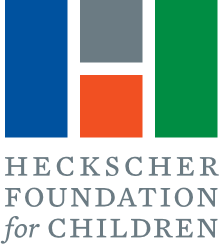
The False Claims Act (FCA) is an American federal law that imposes liability on persons and companies who defraud governmental programs. It is the federal government's primary litigation tool in combating fraud against the government. The law includes a qui tam provision that allows people who are not affiliated with the government, called "relators" under the law, to file actions on behalf of the government. This is informally called "whistleblowing", especially when the relator is employed by the organization accused in the suit. Persons filing actions under the Act stand to receive a portion of any recovered damages.
The Workforce Investment Act of 1998 was a United States federal law that was repealed and replaced by the 2014 Workforce Innovation and Opportunity Act.

The U.S. Railroad Retirement Board (RRB) is an independent agency in the executive branch of the United States government created in 1935 to administer a social insurance program providing retirement benefits to the country's railroad workers.
Covenant House is a large, nonprofit organization in the Americas, whose goal is to provide safe housing and holistic care to youth ages 16–21 experiencing homelessness and survivors of human trafficking. Covenant House was officially incorporated in 1972, and offers services including healthcare, educational support/GED preparation/college scholarships, job readiness and workforce development programs, substance use treatment and prevention programs, legal services, mental health services, services for young families, and transitional living programs.
Pennsylvania CareerLink is a collaborative project between multiple agencies to provide career services to Pennsylvania employers, potential employees, and others.

Julie Menin is a member of the New York City Council from District 5. Before she was elected to this position, she served as an American attorney, civil servant, non-profit executive, professor and small business owner. In January 2019, she was appointed Director of the Census for NYC and Executive Assistant Corporation Counsel for Strategic Advocacy. Previously, she had worked as the Commissioner of the New York City Mayor's Office of Media and Entertainment and Commissioner of New York City's Department of Consumer Affairs.
Charity fraud is the act of using deception to obtain money from people who believe they are donating to a charity. Often, individuals or groups will present false information claiming to be a charity or associated with one, and then ask potential donors for contributions to this non-existent charity. Charity fraud encompasses not only fictitious charities but also deceptive business practices. These deceitful acts by businesses may involve accepting donations without using the funds for their intended purposes or soliciting funds under false pretenses of need.
The KPMG tax shelter fraud scandal involves illegal U.S. tax shelters by KPMG that were exposed beginning in 2003. In early 2005, the United States member firm of KPMG International, KPMG LLP, was accused by the United States Department of Justice of fraud in marketing abusive tax shelters.
In the United States, Medicare fraud is the claiming of Medicare health care reimbursement to which the claimant is not entitled. There are many different types of Medicare fraud, all of which have the same goal: to collect money from the Medicare program illegitimately.
Opportunities for a Better Tomorrow (OBT) is a non-profit with locations in Brooklyn and Queens in New York City. In 2013, OBT partnered with the YMCA of Greater New York in the creation of Y Roads Centers.
Career Pathways is a workforce development strategy used in the United States to support workers’ transitions from education into and through the workforce. This strategy has been adopted at the federal, state and local levels in order to increase education, training and learning opportunities for America’s current and emerging workforce.

The "kids for cash" scandal centered on judicial kickbacks to two judges at the Luzerne County Court of Common Pleas in Wilkes-Barre, Pennsylvania, US. In 2008, judges Michael Conahan and Mark Ciavarella were convicted of accepting money in return for imposing harsh adjudications on juveniles to increase occupancy at a private prison operated by PA Child Care.

The Texas Workforce Commission (TWC) is a governmental agency in the U.S. state of Texas that provides unemployment benefits and services related to employment to eligible individuals and businesses.
The New York City Department of Small Business Services is a municipal department of New York City dedicated to supporting and empowering small businesses throughout the five boroughs. NYC SBS plays a vital role in fostering economic development, job creation, and entrepreneurship within the city. The agency provides a wide range of programs, services, and resources aimed at helping small businesses thrive in the dynamic and competitive business environment of New York City. Its regulations are compiled in title 66 of the New York City Rules. SBS also issues waterfront construction permits.

The Heckscher Foundation for Children is a New York City-focused private foundation that provides grants to underserved New York City youth. Often, the foundation's grant-giving takes the form of program support, capacity-building, capital projects and general operating support.
The 2010 Medicaid fraud was a case of Medicaid fraud carried out by an Armenian-American organized crime group called the Mirzoyan–Terdjanian organization. The scam involved a crime syndicate which created 118 fake clinics in 25 states and used stolen medical license numbers of real doctors and matched them to legitimate Medicare patients whose names and billing information were also stolen. The group submitted more than $163 million in claims and received $35 million of that before they were caught. Prosecutors charged 73 individuals in several states with allegations of racketeering conspiracy, bank fraud, money laundering and identity theft.

Founded in 1965, the Chinese-American Planning Council, Inc. (CPC) is one of the largest non-profit providers of educational, social, and community services for Asian-Americans in the United States. It now services over 8,000 people daily through some 50+ programs at over 30 locations citywide. It administers early childhood, school-age child care, youth, community, workforce development, and senior services. Its mission is to serve the Chinese-American, immigrant, and low-income communities in New York City by providing services, skills, and resources towards economic self-sufficiency.

The Workforce Innovation and Opportunity Act (WIOA) is a United States public law that replaced the previous Workforce Investment Act of 1998 (WIA) as the primary federal workforce development legislation to bring about increased coordination among federal workforce development and related programs.
Gregg Allen Phillips is the former head of the Mississippi Department of Human Services, Deputy Commissioner of the Texas Health and Human Services Commission, and the author of a tweet cited by U.S. President Donald Trump that falsely alleges, without evidence, that between three and five million non-citizens voted in the 2016 elections. Phillips executive produced and appeared in Dinesh D’Souza's debunked political film 2000 Mules and pushed a conspiracy theory about election fraud. He was partnering on a project with a Texas-based, partisan-conservative organization named True the Vote which falsely alleges widespread voter fraud in the 2020 election, even though "on the record there has been still no evidence or proof provided that there was any sort of fraud".
Mark Floyd Pomerantz is an American attorney. He is a member of the New York law firm Paul, Weiss, Rifkind, Wharton & Garrison, generally referred to as Paul, Weiss. In February 2021, he left that firm to assist with the Manhattan District Attorney's investigation into the finances of former president Donald Trump until his resignation from the case in February 2022.







